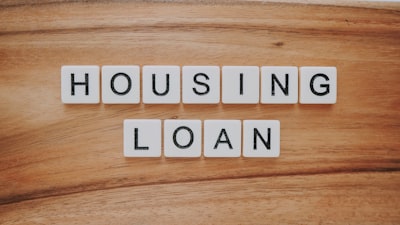Key Highlights
A wraparound mortgage is a type of seller financing. It helps both buyers and sellers.
Buyers who have trouble getting a regular mortgage might find a wraparound mortgage easier to get.
Sellers can earn more money by charging a higher interest rate than their original mortgage. This rate can be even higher than current market rates. It also attracts more potential buyers, even those with a poor credit history.
There are risks with wraparound mortgages. A buyer or seller might fail to follow the payment terms.
Buyers and sellers should think about the good and bad sides before agreeing to a wraparound mortgage.
It’s important to understand the legal and financial aspects of wraparound mortgages. This includes state rules and how it affects credit scores.
Introduction

If you have trouble getting a regular mortgage loan, a wraparound mortgage might be a good option for you. This type of seller financing is helpful for both the buyer and seller when buying a home. For buyers, it gives a way to get money when other choices aren’t available. This is a smart way to own a home. For sellers, it allows them to earn money and attract more potential buyers.
A wraparound mortgage is different from a regular mortgage. In a normal home purchase, a buyer takes out a loan from a lender to pay the seller for the house. With a wraparound mortgage, the seller keeps their existing loan but lends money to the buyer instead. This loan covers the remaining balance of the original loan. The seller’s loan wraps around the original loan. Each month, the buyer pays the seller. The seller uses a portion of this payment to cover their mortgage.
Wraparound mortgages can be good for both buyers and sellers. However, there are also challenges and risks. It is important for everyone to know the good and bad sides before starting a wraparound mortgage. In this blog, we will explain what wraparound mortgages are. We will talk about their benefits and challenges. We will also look at legal issues, financial parts, and real-life stories. At the end, we will answer common questions about wraparound mortgages.
Understanding Wrap Around Mortgage Pros and Cons
A wraparound mortgage is a type of seller financing. This means the buyer can take over the seller’s existing mortgage and also get a new junior mortgage. Along with this, the buyer receives a second mortgage from the seller. This kind of financing has its ups and downs for both buyers and sellers.
A wraparound mortgage can be a good option for buyers. It can provide you with money when regular lenders might say no to a conventional loan. You may see more choices for interest rates and down payments as well. Still, there are risks to consider. A wraparound mortgage might cause problems, such as missing payments on the original loan. This could damage your credit score. Therefore, it’s important to think carefully about whether a wraparound mortgage suits your financial situation.
For sellers, a wraparound mortgage can make selling their property quicker. It might also help them earn more money because of a higher interest rate. This kind of mortgage can draw in more buyers. This is good for those who can’t get regular mortgages or want choices like Rocket Homes. However, sellers need to know the risks as well. A buyer might miss payments, and this can cause legal problems.
It is important for both buyers and sellers.
They need to think about the good and bad points of wraparound mortgages.
This should be done before they make a deal.
Definition and Basic Concept
A wraparound mortgage, also called an all-inclusive trust deed (AITD), is a kind of seller financing. Here, the buyer takes the seller’s existing mortgage. The buyer also gets another mortgage from the seller. In this deal, the seller acts as the lender and gives credit to the buyer. This means the buyer can buy the property without needing regular financing from a bank or mortgage lender.
A wraparound mortgage uses a promissory note. This note has the loan details, such as the interest rate and payment schedule that both the buyer and seller agree on. Each month, the buyer makes a payment to the seller. This payment helps cover the monthly mortgage payment that the seller owes to the original lender. The seller then uses some of this money to pay their original mortgage. The rest of the money is the seller’s profit.
This kind of financing is useful for homeowners and buyers who may struggle to get regular mortgages. It helps them reach out to a listing agent and get a complete list of MLS listings. This list shows information about properties shown in square feet (sqft). A low credit score, unusual income, or high debt in relation to income can create problems. This financing also helps improve cash flow. Sellers might use this option to sell their homes and could earn some profit from interest payments. Most people in the area have a high school diploma. Their average income affects their financial choices.
How Wrap Around Mortgages Differ from Traditional Mortgages Financing
Wraparound mortgages are different from regular mortgages. They have many differences.
In a traditional mortgage, the buyer gets money from a lender. They use this money to buy the property. The lender then has rights to that property. The buyer pays back the loan by making monthly payments to the lender.
In a wraparound mortgage, the seller keeps their original loan. They help the buyer get financing. The buyer takes over the seller’s existing loan. They also receive a second loan from the seller. Each month, the buyer pays the seller. A part of these payments goes towards the seller’s original loan. The seller makes a profit because of the difference between the interest rate on their original mortgage and the rate they charge the buyer for the second loan. This is one way of seller financing.
One key difference is that, with a wraparound mortgage, the buyer does not receive a new loan from a bank or lender. Instead, the buyer takes over the seller’s existing mortgage. Then, the buyer gets a second mortgage from the seller. In this case, the seller acts as the lender and the buyer is the borrower. This option can help buyers who cannot secure a regular mortgage or when there are no cheaper options available.
Advantages of Wrap Around Mortgages

Wraparound mortgages have several benefits for buyers and sellers.
Wraparound mortgages are a good option for buyers. A main benefit is that these loans help buyers get financing when regular lenders would say no. This can be helpful for those with low credit scores or no credit history. It is also a good choice for people with unique income sources or high debt relative to their income. Wraparound mortgages can offer more flexibility when it comes to interest rates and down payment amounts.
A wraparound mortgage can help sellers sell their property fast. They can make money with a higher interest rate. This option might attract more buyers. It works well for people who may not qualify for standard mortgages.
Benefits for Buyers
Buyers can enjoy several benefits from a wraparound mortgage.
First, it’s usually easier to get a wraparound mortgage than a traditional mortgage. This is true for people with a low credit score or a nontraditional job.
A wraparound mortgage is not the only choice for people who have bad credit.
They can also check several borrowing options, like FHA loans, Department of Veterans Affairs loans, and U.S. Department of Agriculture loans.
A wraparound mortgage could help the buyer borrow less money. They typically only need to pay the remaining mortgage balance and a small profit to the seller.
This can be helpful for buyers who want to purchase a home at a lower price.
Lastly, a wraparound mortgage offers another way to finance when other options are not available. This helps buyers continue moving forward with their home purchase.
Benefits for Sellers
Sellers can gain from a wraparound mortgage.
A wraparound mortgage lets sellers charge a higher interest rate than their original loan.
This way, they can profit from the buyer’s monthly mortgage payments.
A wraparound mortgage attracts more potential buyers because it is easier to finance.
Sellers can keep their current mortgage. This allows them to avoid extra fees or penalties for paying it off early.
In short, a wraparound mortgage gives sellers a way to finance sales. It helps them earn more and sell their home better.
Challenges of Wrap Around Mortgages

Wraparound mortgages can be helpful, but they also come with challenges and risks. Buyers need to think about several things. One risk is that the seller might stop paying on their original loan. If this happens, it could result in foreclosure, which puts the buyer’s home at risk. Another risk is that if the seller doesn’t ask for permission from the original lender or breaks the first contract, it could lead to problems with the agreement. Sellers have their own risks to consider, too.
A buyer who doesn’t make payments can cause money problems and hurt their credit score. It is really important for both buyers and sellers to carefully consider these issues before deciding on a wraparound mortgage.
Potential Risks for Buyers
Buyers should understand the risks of wraparound mortgages. One risk is that the seller might stop paying their original loan. If this happens, it can lead to foreclosure. If the original mortgage lender forecloses, the buyer may have to leave the property. To reduce this risk, buyers can add a clause in the purchase agreement. This ensures that some of their payments go directly to the original lender.
Another risk is that the seller may not follow the contract. For example, if the seller fails to get permission from the original lender. This could cause the lender to demand full repayment or take back the property. Additionally, if the seller stops making mortgage payments, it could harm the buyer’s credit score.
Potential Risks for Sellers
Sellers face risks when they use a wraparound mortgage. One risk is that the buyer could fall behind on their monthly payments. If this happens, the seller has to cover the mortgage by themselves. This can create financial problems for the seller and could result in missed payments, hurting their credit score. Another risk is that the original lender might not accept the wraparound mortgage.
If the original lender says no to the request, the seller might have to end their loan agreement. This could lead to the lender asking for full payment right away or taking back the property. Sellers should think about these risks carefully before they choose to offer a wraparound mortgage.
Navigating the Legal Landscape

Navigating the legal side of wraparound mortgages is very important. Buyers and sellers need to know the legal issues and protections involved. Sellers should see if their current mortgage can be taken over. This means the buyer can use the terms of the seller’s mortgage. Typically, Federal Housing Administration (FHA) loans, U.S. Department of Agriculture (USDA) loans, and Veterans Affairs (VA) loans can be taken over. However, conventional mortgages usually cannot be assumed. The rules can also vary by state, affecting how wraparound mortgages work legally. It is key to talk to legal experts who know real estate law. This helps everyone follow state laws and keeps the interests of both buyers and sellers safe.
Legal Considerations and Protections
Buyers and sellers need to understand the legal rules and protections that come with wraparound mortgages. Sellers must check if they can let someone take over their existing mortgage. This is key for offering a wraparound mortgage. An assumable mortgage allows a buyer to take over the seller’s mortgage terms, which can provide better options than getting a new mortgage. Sellers should think about their original mortgage balance when talking about the wraparound mortgage terms. It’s important that the wraparound mortgage protects both sides and follows the law. Getting help from real estate law experts can ensure everything goes smoothly.
State-Specific Regulations and Implications
State rules matter a lot for wraparound mortgages. Every state has different laws about seller financing and wraparound mortgages. These laws can decide if wraparound mortgages are allowed and what they mean in that state. It is important for buyers and sellers to know the rules of the state where the property is located. This helps them follow the law and protect what is best for both parties.
Each state has different rules about buying a home. These rules can affect how the usual buying process differs from wraparound mortgages. It’s important to understand these differences if you face any legal issues with wraparound mortgages. Talking to experts, such as a real estate lawyer who knows real estate and state laws, can offer useful advice. This can help make everything easier.
Financial Implications
Wraparound mortgages can influence both buyers and sellers in several ways. A change in the interest rate and the payment schedule can impact how much the buyer pays in total. Buyers should carefully check the interest rate and monthly payments to make sure they can handle them. The type of extra financing from a wraparound mortgage can also affect a buyer’s money situation. Sellers need to know that a higher interest rate can help them make a profit, but it also affects their finances. It is important for both buyers and sellers to consider these financial factors. This helps them make smart choices and see if a wraparound mortgage is right for them.
Interest Rates and Payment Structures
The interest rate and payment plan in a wraparound mortgage can greatly affect the buyer’s finances. Buyers should check the interest rate offered by the seller and compare it with other available loans. A higher interest rate may raise the total mortgage cost and alter monthly payments. The payment plan is important too. It includes how long the payments will go on and how often they are due. Buyers need to make sure they can afford the plan.
A wraparound mortgage is a unique kind of secondary financing. This can impact the buyer’s money matters. Buyers must understand the terms and costs linked to this kind of financing. They also need to know about any risks that come with it. It is important to look closely at the interest rate, payment plan, and the specific type of secondary financing. Knowing this will help buyers make a wise choice about a wraparound mortgage.
Impact on Credit Scores and Taxation
A wraparound mortgage can affect credit scores and taxes for buyers and sellers.
For buyers, paying on time can increase their credit score. This shows they handle their money well.
But, if the seller fails to pay their original loan or breaks the contract, it can hurt the buyer’s credit score.
Sellers need to remember that wraparound mortgages can be reported to credit bureaus. Missing payments can negatively impact their credit score.
Buyers and sellers should talk to tax experts to understand how taxes relate to a wraparound mortgage.
It is important to know how the IRS views the deal and any taxes that might arise.
Understanding the impact on credit scores and taxes is essential for both sides. This helps them make good choices and avoid bad consequences.
Navigating Property Taxes and Historical Tax Information

Knowing about property taxes and looking at past tax information is essential for buyers and sellers using a wraparound mortgage.
Buyers should understand how property taxes relate to a wraparound mortgage. It’s important to learn how property taxes are calculated and when they need to be paid. This knowledge can help prevent any unexpected issues in the future.
Sellers need to provide accurate past tax details. This keeps the information correct and makes it easier to transfer ownership. Mistakes in tax payments can lead to legal issues in the future.
Talking to a real estate attorney or a tax advisor can help people manage property taxes more effectively. This also ensures that they obey all the rules.
Wraparound mortgages can have a big impact on buyers and sellers. This is particularly important concerning credit scores and taxes.
For buyers, paying on time for a wraparound mortgage can help increase their credit score. This means they handle their money well. However, if the seller doesn’t pay their original loan or breaks the contract, it could negatively affect the buyer’s credit score.
Sellers need to keep in mind that a wraparound mortgage can be reported to credit bureaus. If payments are missed, it may hurt their credit score.
Comparative Analysis Across States with Different Real Estate Laws
Comparing real estate laws in different states matters a lot. Each state has its own rules that can change how people buy, sell, and own property. By knowing these differences, people can make smarter choices. Buyers and sellers need to be aware of the laws in their state. This know-how can help them through the process and keep their investments safe. A good understanding can also lower risks when working with real estate.
When dealing with wraparound mortgages, consider the various real estate laws in each state. Every state has its own rules about property taxes, mortgage agreements, and the legal treatment of these transactions.
Buyers and sellers should look at their choices to understand how laws impact their money responsibilities and rights when using a wraparound mortgage. This action helps them make wise decisions and avoid errors. It’s also important for them to know how wraparound mortgages can affect credit scores and taxes.
Wraparound mortgages have their own challenges and opportunities for buyers and sellers in the real estate market. It’s important to know how they can affect credit scores and tax duties for everyone involved.
Buying a wraparound mortgage can help buyers improve their credit score. Making payments on time shows they are financially responsible. This can lead to better creditworthiness overall.
Demographic Considerations in Wrap Around Mortgage Context
Demographic Factors to Consider in Wrap Around Mortgage Situations
It’s important for both buyers and sellers to know the demographic factors behind wraparound mortgages. Different groups of people may see these transactions differently. This can change how they make their choices.
Age, income, and location can change how people view and use wraparound mortgages. By considering these factors, everyone can change their approach. This makes the process easier and more successful. When buyers look at wraparound mortgages, they should remember that paying on time can boost their credit scores. Managing money well not only strengthens credit but also opens doors for future chances.
Sellers who are interested in wraparound mortgage deals should consider how factors like age, income, and location can influence their decisions. Understanding these factors helps create a more personal approach. This makes it easier to have a smooth and successful transaction.
Alternatives to Wrap Around Mortgage Financing
When looking for financing, buyers who can’t get regular loans should consider several options besides wraparound mortgages. FHA loans are a top choice. They work well for people with lower credit scores or not much money for down payments. These government-backed loans usually offer good interest rates and flexible qualification rules. VA loans are another excellent option for qualified veterans and active-duty service members. They often require no down payment at all. USDA loans support buyers in rural areas and can offer low or no down payment options. Each of these choices offers different benefits that can fit specific needs. This helps future homeowners find a better way to buy a home.
Real-Life Scenarios and Outcomes
Real-life examples can show us how wraparound mortgages work. There are success stories where both buyers and sellers have gained from seller financing. These stories show how wraparound mortgages help buyers get homes and help sellers make money. But, there are also cautionary tales that point out the risks and downsides of wraparound mortgages.
These stories show why it is important to think clearly and research well before getting into a wraparound mortgage deal. Learning about real-life cases of wraparound mortgages can help both buyers and sellers make smart choices. It can also support them in handling any issues that might come up.
Success Stories
Success stories of wraparound mortgages show how this type of seller financing can support both buyers and sellers. A buyer may not get a regular mortgage because of a low credit score or for having a different job. A wraparound mortgage allows them to obtain the money they need to buy the home they want. Sellers gain advantages from these deals too.
Wraparound mortgages can help people make money with a higher interest rate. They also attract more buyers. These examples show how wraparound mortgages can make buying a home easier and benefit everyone involved. Websites like SmartAsset provide real-life stories and examples. These stories can inspire and guide buyers and sellers interested in a wraparound mortgage.
Cautionary Tales
Cautionary tales point out the risks of wraparound mortgages. These stories show times when buyers or sellers had problems and ended up with bad results. For instance, a buyer could lose their home to foreclosure if the seller does not pay their original loan. Sellers might also face money troubles or see a drop in their credit score if buyers do not make their payments.
These warning stories explain why it is important to research fully. It’s also necessary to get good legal advice and to carefully consider a wraparound mortgage. When buyers and sellers know the risks and possible problems, they can make smart decisions and take steps to protect themselves.
Conclusion
In conclusion, it is important to know the good and bad sides of wrap-around mortgages before deciding to use this loan. These mortgages can give benefits like unique terms for buyers and sellers. But they can also have risks, especially with laws and money matters. You should understand the local laws and rules. This will help make sure your deal goes smoothly.
You can learn a lot about wrap-around mortgages by looking at real-life examples and understanding good and bad experiences. It helps you make smart choices. Stay updated and feel free to contact eps houses. Think about all the factors carefully before you choose this financial option.
Frequently Asked Questions
Who is a Good Candidate for a Wrap Around Mortgage?
A person in need of a wraparound home loan might have a low credit score. They may work in a job that is not standard. This can make it hard for them to get a regular mortgage. But, there are government-backed loans that could help. They can look into options like VA loans, USDA loans, or FHA home loans to buy a home.
What Happens if the Original Mortgage Goes into Default?
If the original mortgage does not go well, it can cause big problems for both the buyer and the seller in a wraparound mortgage. The lender might take back the property, which could mean the buyer gets kicked out. This could also lead to money issues for the seller.
Can Wrap Around Mortgages be Refinanced or Renegotiated?
Wraparound mortgages can be adjusted or refinanced. But this can be more difficult than with regular mortgages. Buyers and sellers should talk to lenders and legal experts. They can help them learn about their options for refinancing or modifying a wraparound mortgage.
What about the “due on sale” clause?
The “due on sale” clause in a wrap-around mortgage is a rule. This rule lets the lender ask for full payment if the property gets sold. It is important to know what this clause means before you agree to this type of deal on a website.
Timeframe for Closing a Wrap Around Mortgage Transaction
The time to close a wraparound mortgage can vary quite a bit. Often, these deals close quicker than regular mortgages. This happens because they use the seller’s existing appraisal and title work. This makes everything easier. However, the closing time also depends on how quickly the seller’s lender approves the wraparound agreement. It is important for everyone involved to communicate clearly and have all the necessary paperwork ready. Buyers should stay active by checking in with the seller and any legal or financial agents to keep the process running smoothly.
Ownership and Title Holding in Wrap Around Mortgage Agreements
A wraparound mortgage is a form of seller financing. Here, the buyer’s monthly payments go “around” the original mortgage. This option offers flexible terms and interest rates, different from regular mortgages. Sellers can receive steady income and may sell their homes quicker. Buyers can also find financing even with lower credit scores. However, there can be risks. If payments are missed, both the seller and buyer could encounter problems, including legal issues. It is crucial to understand wraparound mortgages to handle this special kind of real estate deal.


